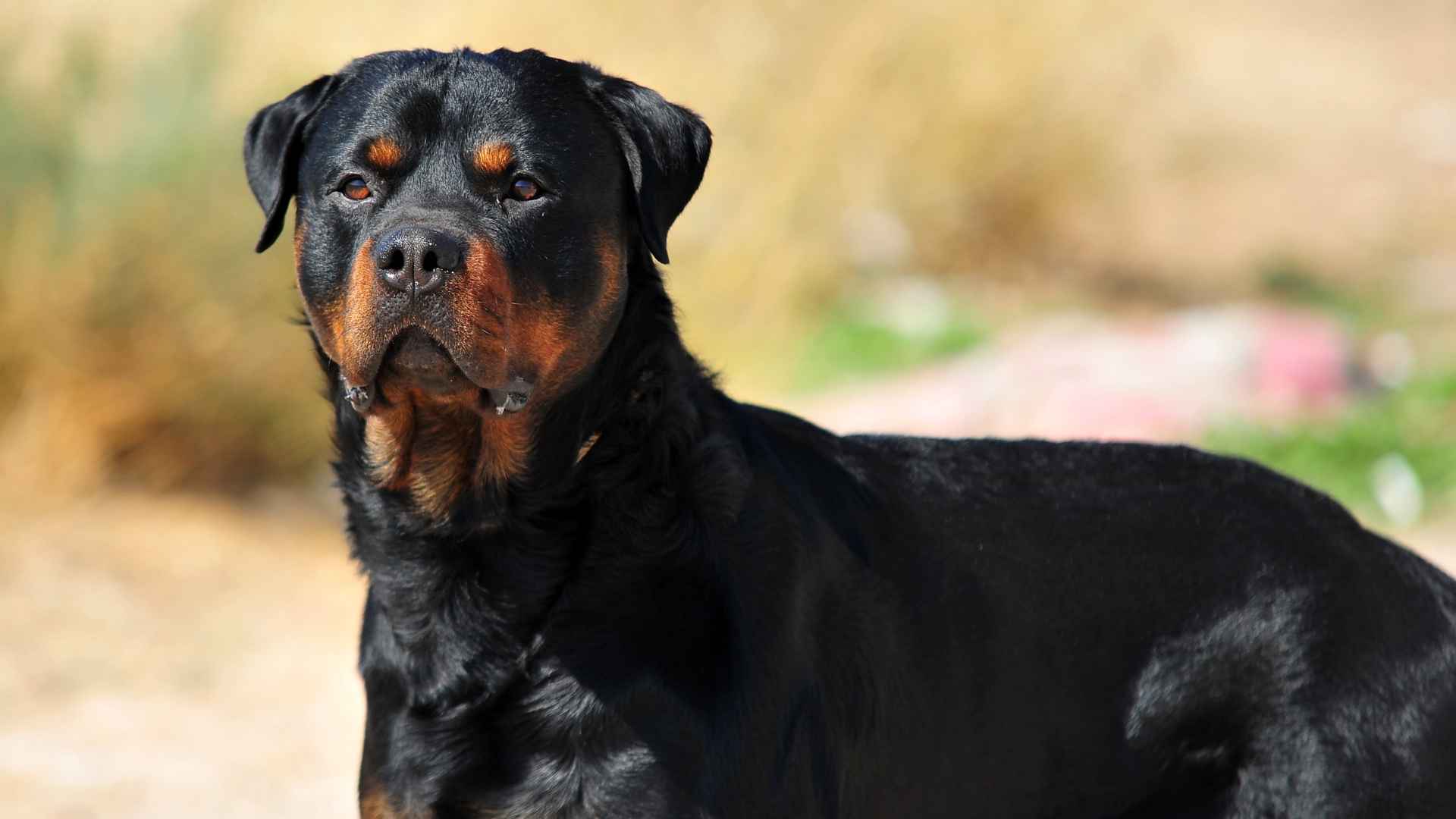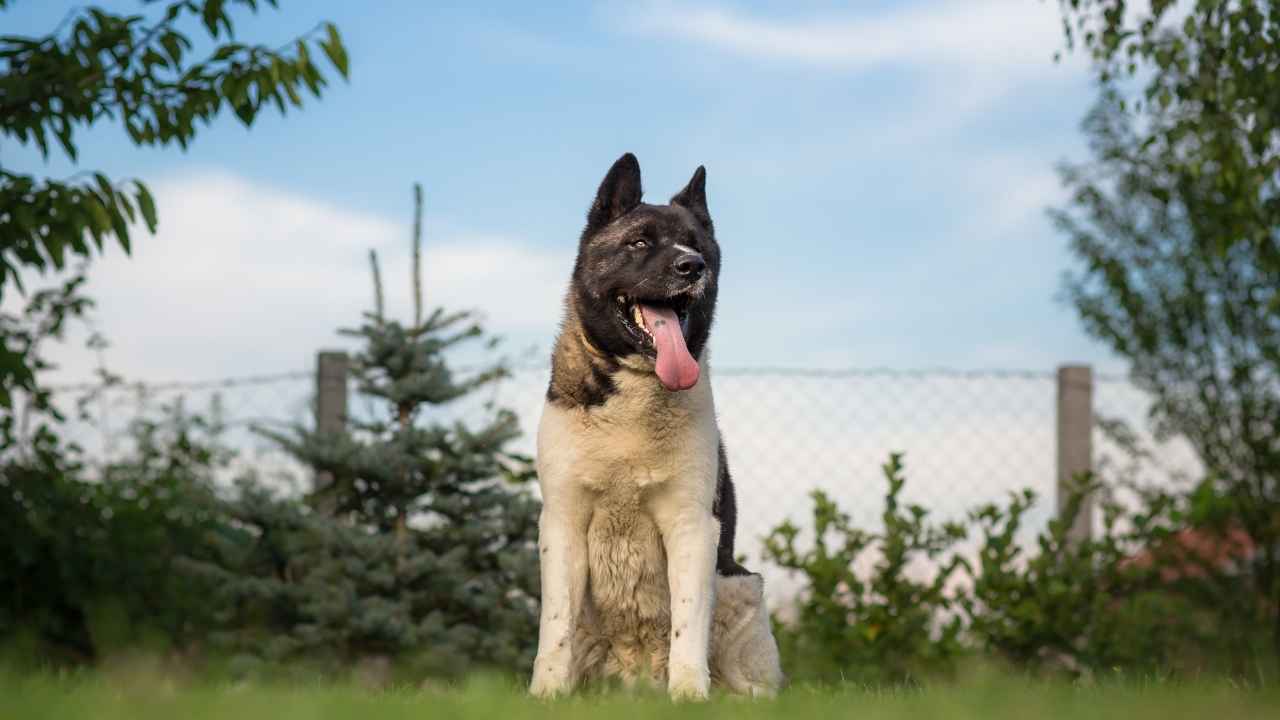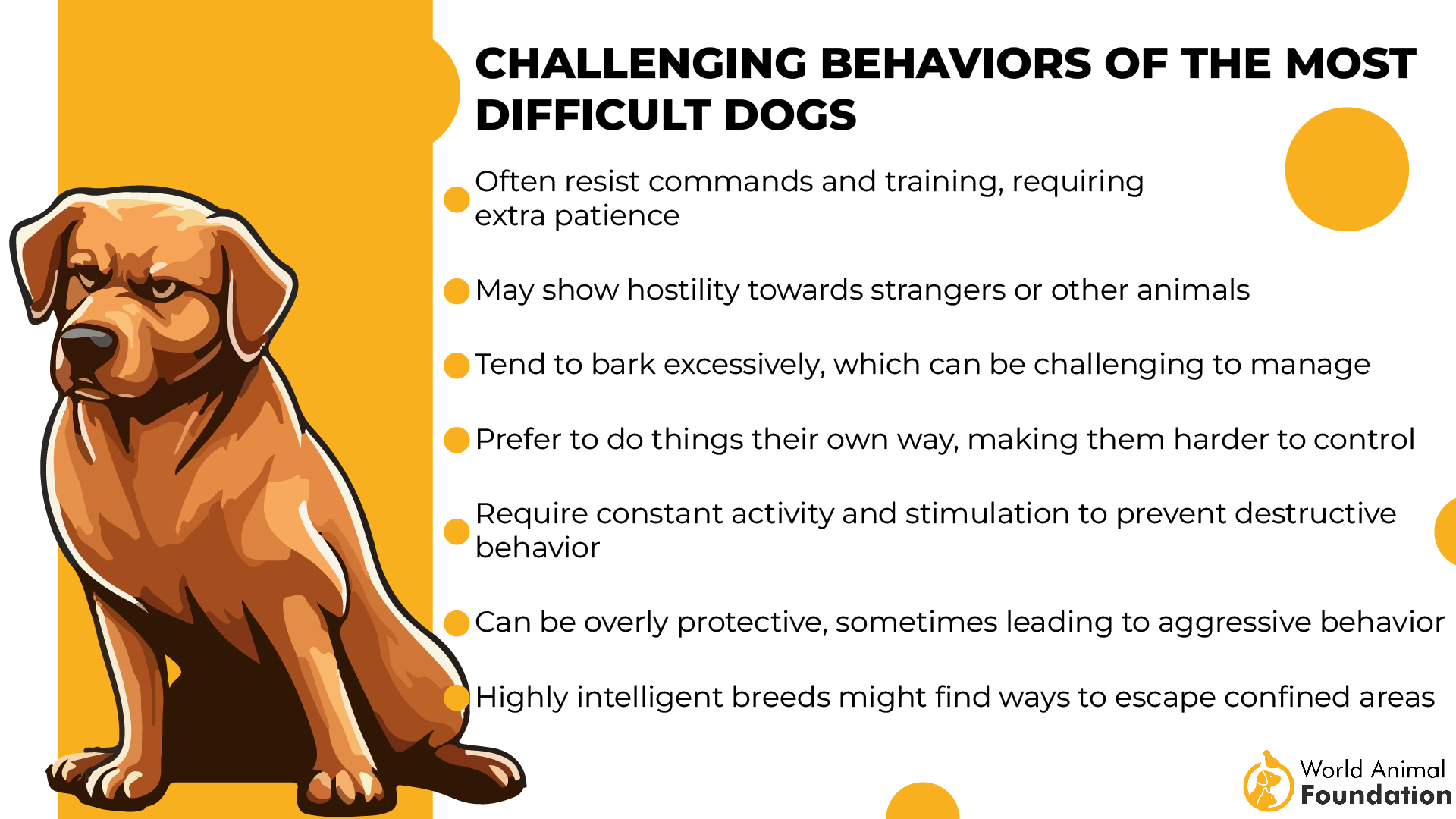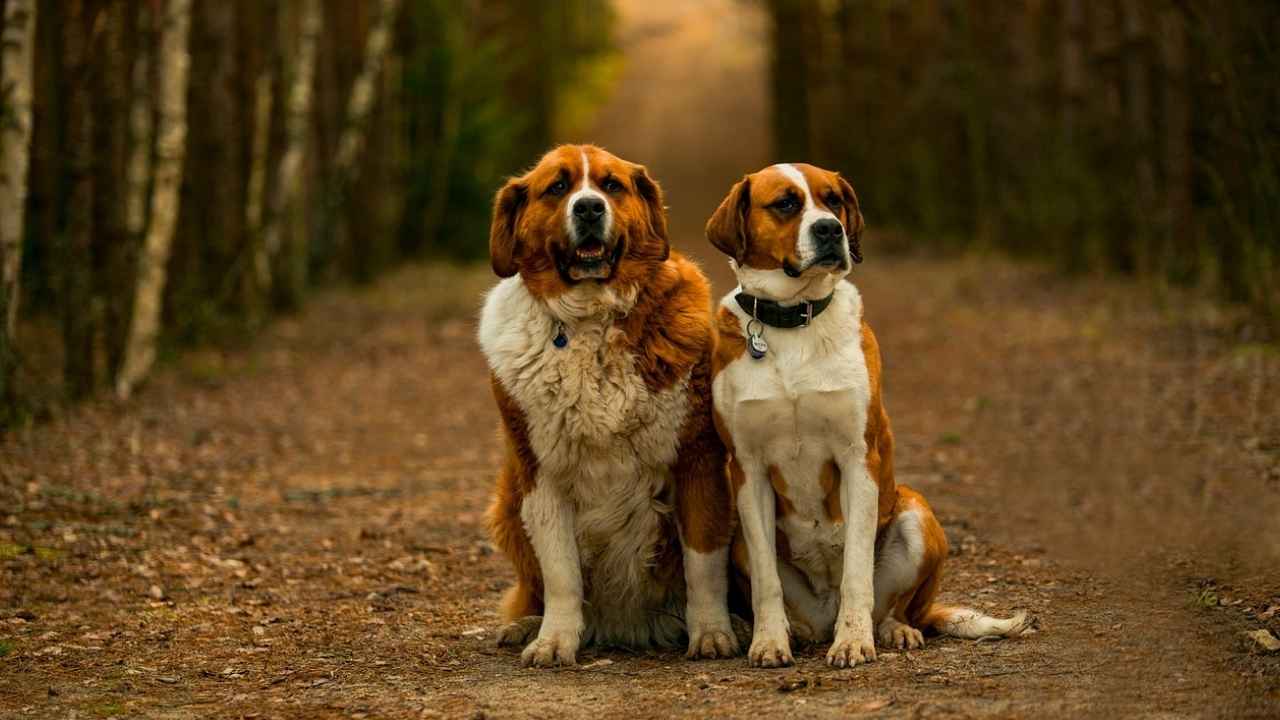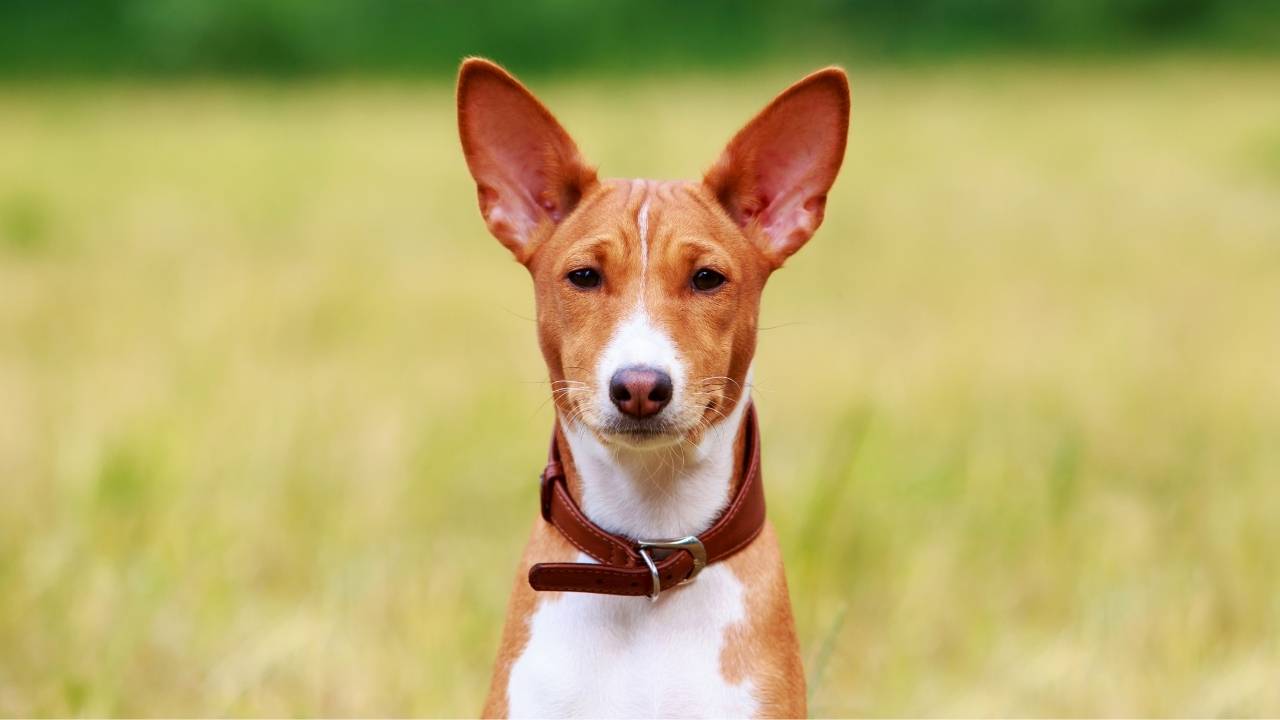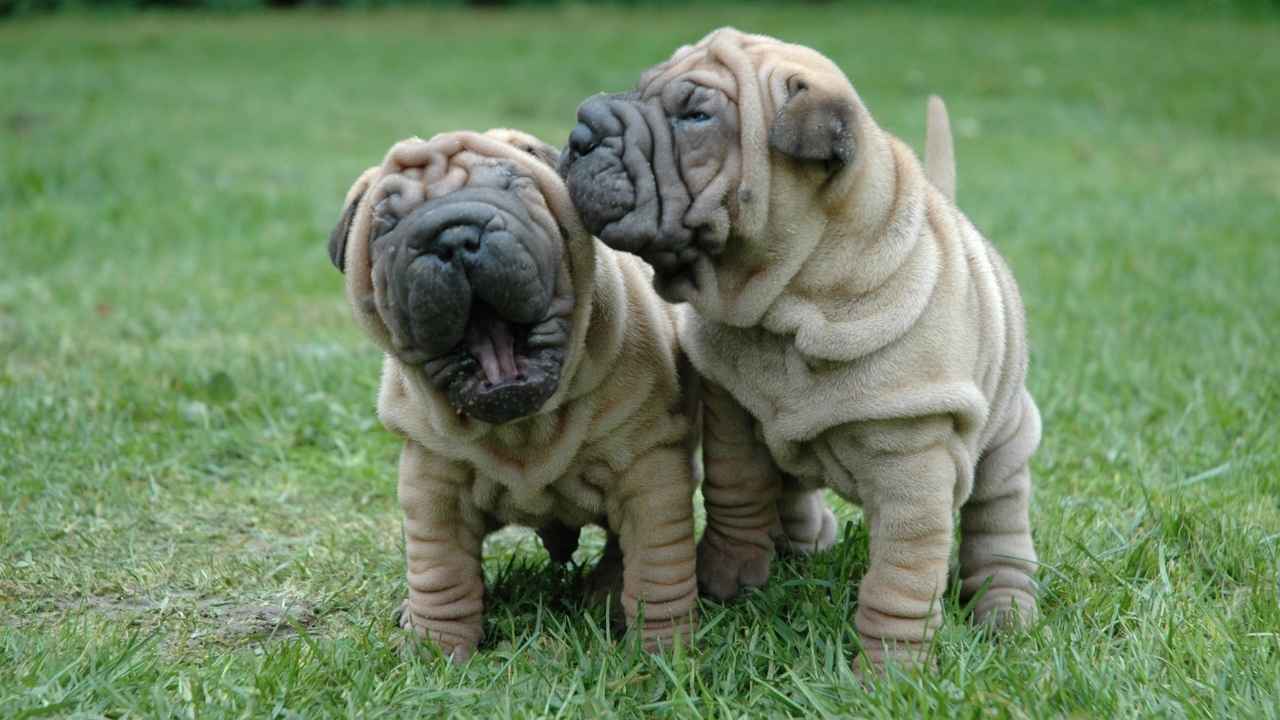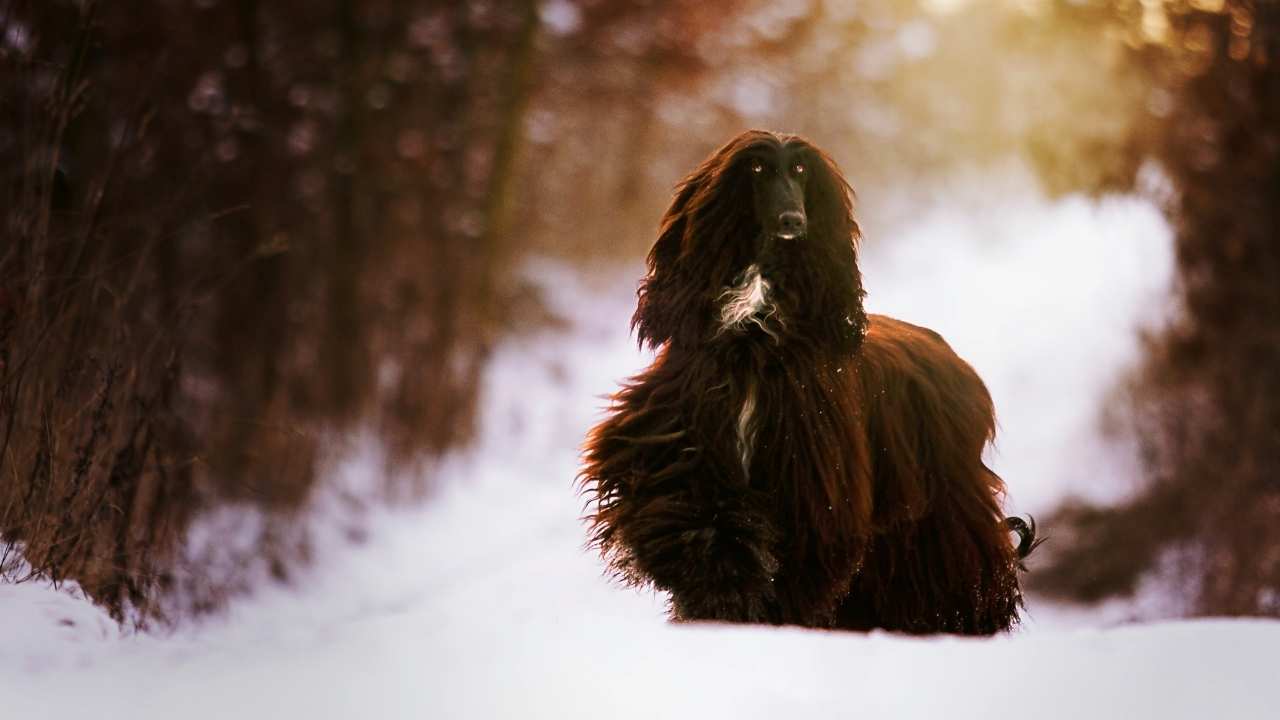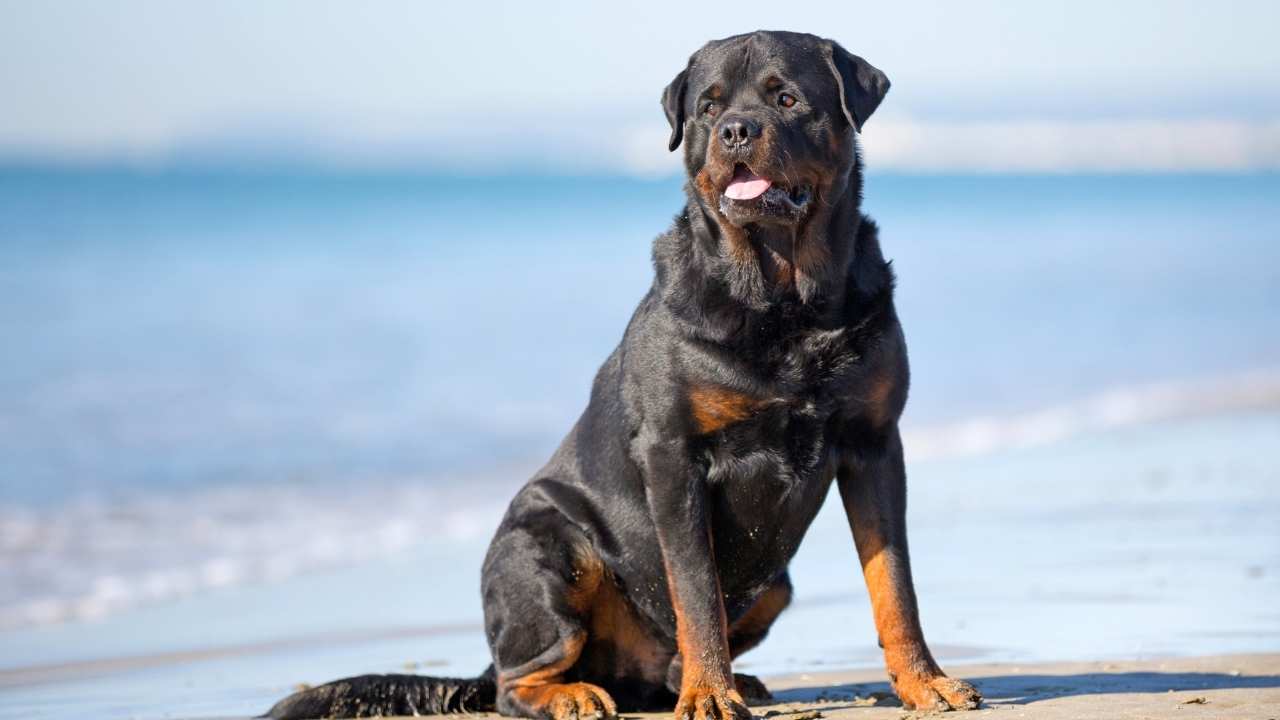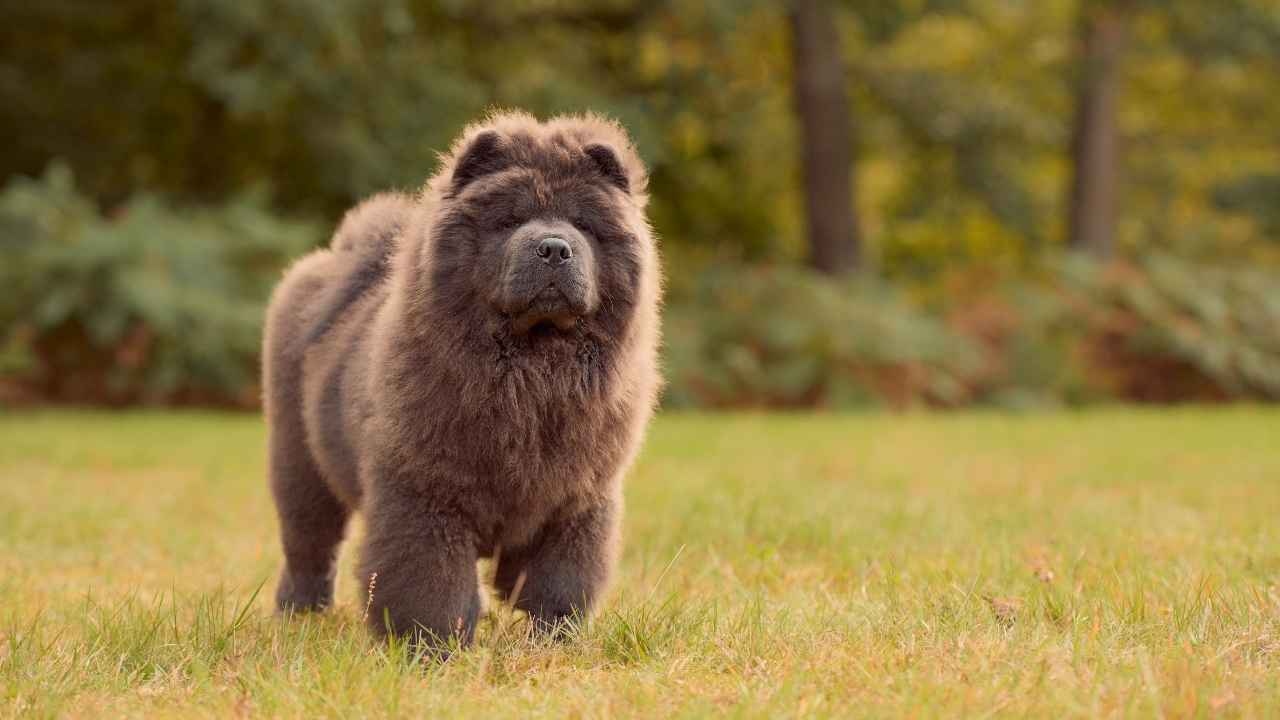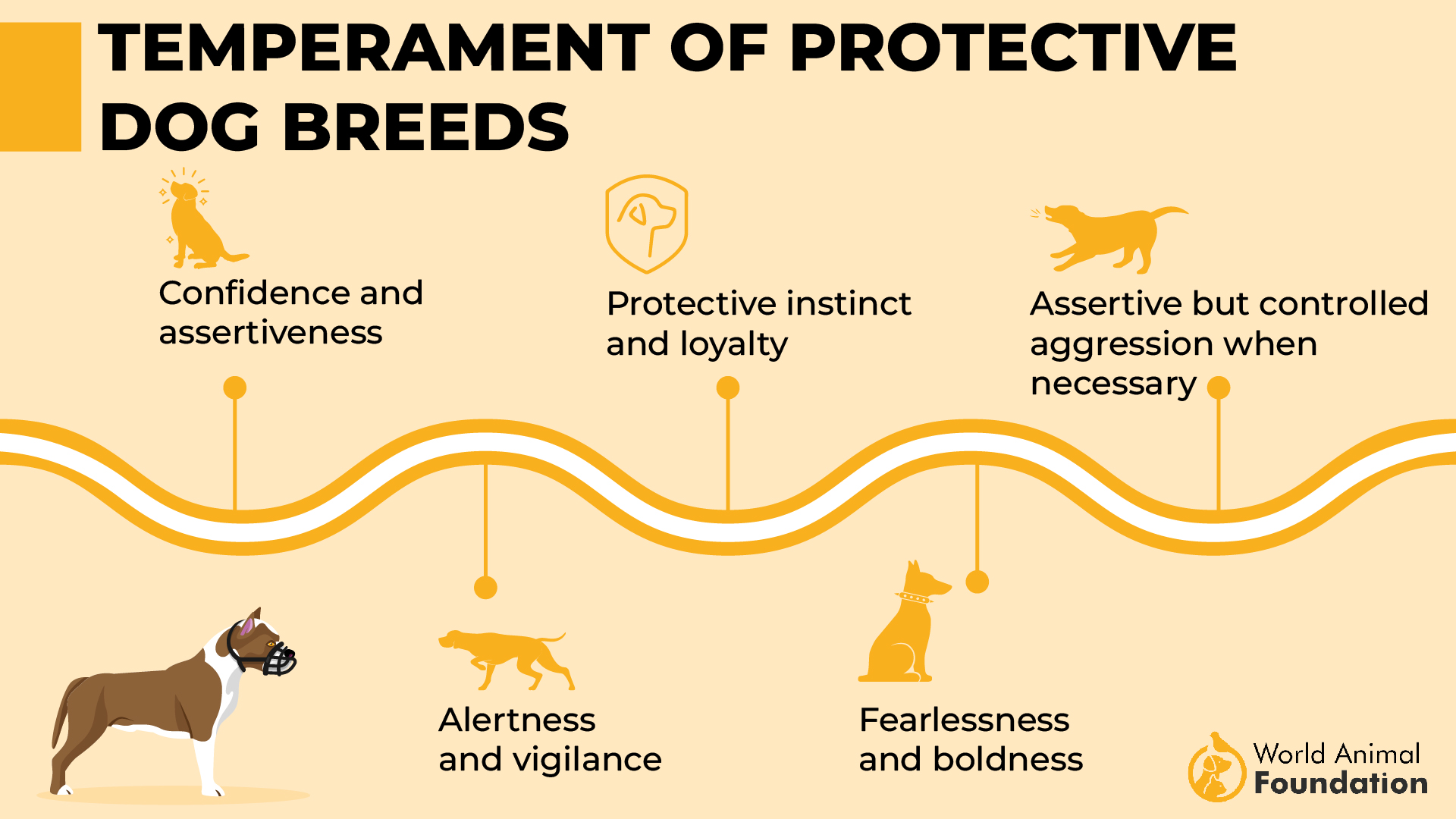When it comes to man’s best friend, not all dogs are created equal in terms of their sociability. While every dog is unique with its own temperament, certain breeds have garnered reputations for being less than amiable. Understanding these temperaments is crucial for anyone considering bringing a new canine companion into their home. In this guide, we will explore seven dog breeds often labeled as “unfriendly,” delving into the characteristics that contribute to their prickly reputations. With the right knowledge and approach, even the most aloof breeds can become loving members of the family.
Dogs may be man’s best friend, but not all breeds are rolling out the red carpet for every stranger who comes along. While undeniably loyal and loving to their families, some pups have personalities that scream, “Keep your distance!” From aloof attitudes to downright territorial tendencies, these breeds take “unfriendly” to a new level.
Whether guarding their kingdom or simply too independent to care, these unfriendly, aggressive breedsmarch to the beat of their own drum. If you’re considering one of these breeds, be ready for a challenge—because they won’t be the neighborhood greeters. Instead, they’re likelier to keep their inner circle small and exclusive.
7 Unfriendliest Dog Breeds
1. Akita
Akitas are the ultimate “me, myself, and I” kind of dog. If you’re thinking about bringing one into a household with other animals, including cats—think again!
These regal fluffballs prefer to reign solo, and anything small and scurrying, like a hamster, might just trigger their prey drive. Socializing an Akita is like teaching a cat to swim—possible, but not their vibe. So, if your dog starts warming up to anyone outside their tight circle, consider it a monumental achievement worthy of celebration!
They’re also not fans of surprises. Strange sounds, other animals, unfamiliar objects, or sudden changes can bring out their aggressive tendencies.
While they exude confidence, they rank surprisingly low on the friendliness scale, making them show somewhat aggressive behavior in new situations. These dogs take their guarding instincts seriously and are fiercely territorial, with a high prey drive and a no-nonsense attitude about who gets access to their kingdom.
Think of them as the grumpy but lovable friend who secretly cares—just don’t expect hugs from strangers.
2. Saint Bernard
Saint Bernards might have the reputation of being gentle giants, but don’t let their cuddly, droopy faces fool you—they’ve got a streak of unfriendly behavior you’ll want to keep in check. Compared to other dogs, these colossal canines can turn into fiercely territorial protectors when it comes to their homes and families.
If you think you’re getting a walking marshmallow, think again—Saint Bernards doesn’t exactly roll out the welcome mat for strangers. AKC says they are highly inquisitive and protective! But, without proper socialization, they can become downright intimidating and showcase aggressive tendencies.
Training these stubborn giants? Good luck! They have a mind of their own, and without consistent guidance, they’ll happily take charge of the household. This is why only experienced dog owners can handle them well.
Oh, and don’t even think about skipping consistent training, socialization, or mental stimulation—these dogs hate boredom. A bored Saint Bernard isn’t just destructive; they’re couch-shredding destructive. Picture your living room after a hurricane, and you’ve got a glimpse of what happens when one of these big guys decides to entertain themselves.
Bottom line? If you’re ready to commit to serious training and constant vigilance, you’ll have a loyal family pet. But if you slack off, don’t be surprised if your Saint Bernard turns into the neighborhood’s least-friendly giant!
3. Basenji
Basenjis: the little dog with big opinions. If you’re a first-time dog owner dreaming of a laid-back, go-with-the-flow pup, let me stop you right there—Basenjis are not that dog. These high-energy bundles of sass are like the ultimate challenge for dog owners who think they’ve seen it all. Training this particular dog isn’t just a task; it’s a full-blown exercise in patience, persistence, and maybe a little prayer. This dog’s temperament is stubborn, and it will happily outwit you if given half a chance.
And let’s talk about their attitude. These small size dogs aren’t inherently aggressive but also don’t expect them to be social butterflies. Unfriendly? Let’s just say they prefer a tight circle of “approved humans” and aren’t afraid to give strangers the cold shoulder.
Combine this with their energy levels that rival a toddler on a sugar rush, and you’ve got yourself a dog who’s always on the move—but not necessarily in a way that makes your life easy.
Living with these loyal companions can be rewarding as they make strong bonds with family members, but it’s a wild ride. You’ll need dedication, a sense of humor, and maybe a backup plan for when they decide to show their uncooperative side. They’re unique, they’re quirky, but let’s be honest—they don’t tend to be friendly with strangers.
4. Shar Pei
The Shar-Pei is the OG guard dog with an ancient Chinese lineage and an attitude to match. Originally bred as fighters, hunters, and drovers, today’s Shar-Pei is a fierce protector and forms strong bonds with the family.
You don’t need to teach these high-energy dogs how to protect their territory; it’s practically encoded in their DNA. They neither show great aggression nor roll out the red carpet for strangers.
While they’re intelligent and quick-witted, Shar-Peis can be a bit too much to handle for anyone looking for an easygoing pet and is eager to always see them on their best behavior. WebMD says they are highly devoted family dogs. Sure, they can be affectionate and playful with their people, but their aloofness toward unfamiliar faces and their natural independence make them less-than-friendly by nature.
Combine that with bursts of surprising energy, and you’ve got a dog that is challenging with its behavioral issues. The bottom line is that a Shar-Pei is a headstrong protector, not a people-pleaser, so be ready for a companion who sets their own terms.
5. Afghan Hound
The Afghan Hound might look like a supermodel with its flowing coat and elegant stride but don’t expect this dog to be the life of the party. Aloof and fiercely independent, they are more “cool and detached” than “friendly and outgoing.”
They’ve got a strong prey drive that dates back to their days of hunting in rough terrains, so if you let them off-leash, good luck—these dogs will be halfway to the horizon chasing smaller animalslike a squirrel before you can even call their name.
In social settings, their standoffish vibe often comes across as plain unfriendly. Sure, with consistent interaction and positive reinforcement, they might warm up but don’t hold your breath while waiting for them to be the social butterfly of the dog park.
Early yet proper socialization and consistent training are key to keeping their aggressive behavior in check, but even then, Afghan Hounds are more about doing their own thing. Think of them as that one glamorous friend who’s always late and never returns your texts—but somehow, you can’t help but admire them anyway.
6. Rottweiler
Rottweilers might look like big teddy bears, but don’t be fooled—they’re not exactly the friendliest pups on the block.
These dogs can be downright unfriendly if they aren’t properly socialized and trained from a young age. Raising a well-behaved Rottweiler means serious work—puppies need to meet new people, explore different places, and get used to all kinds of situations early on. It is like teaching a stubborn toddler how to play nice with others.
Even with the properly trained, they have a knack for viewing smaller animals as snacks rather than friends. So supervision is a must or they may show aggressive behavior. These powerful and independent large dogs require responsible ownership, patience, and a lot of consistency to avoid their less-than-friendly (dangerous) tendencies from taking over. If you’re not ready to put in the effort, you might find yourself dealing with a moody, territorial protector with great aggression instead of a cuddly companion.
7. Chow Chow
Appearance-wise, Chow Chows may look like adorable, fluffy teddy bears (as described by Pet Plan), but don’t let those lion-like manes fool you—they’re aloof.
These energetic dogs with a protective nature aren’t the type to wag their tails at strangers or throw a welcome party for your guests. In fact, their standoffish temperament often comes across as downright unfriendly with unapproachable characteristics.
Sure, they’re loyal to their families, but when it comes to meeting new people, they take their sweet time to decide if you’re worthy of their attention (spoiler: most people aren’t).
Some might call them independent, but let’s be real—Chow Chows are the canine version of the “you can’t sit with us” clique. Raising a calm, manageable, and properly socialized Chow requires responsible breeding and a lifetime of patience. Even then, don’t expect a snuggly people-pleaser. They’re proud, reserved, and perfectly content, keeping you—and everyone else—at arm’s length. Or, they may act aggressively when things don’t go as they like!
Conclusion
Owning one of these unfriendly breeds can be both a challenge and a privilege. They may not be the tail-wagging, face-licking type, but their loyalty and fierce protectiveness make them stand out uniquely. With proper training, early socialization, and consistent effort, even these aloof canines can become incredible companions for the right owners. If you want a friendly dog, you should rather go for some other dog like a Siberian Husky or Doberman Pinscher.
If you’re ready to embrace their quirks and commit to understanding their complex personalities, these dogs can reward you with loyalty like no other. Just don’t expect a warm welcome from every visitor—they’ve got their own rules for friendship.
In conclusion, while certain dog breeds, such as Chihuahuas or Dachshunds, may be perceived as unfriendly due to their temperament or historical roles, it’s important to remember that individual behavior varies significantly within any breed. Factors including training, socialization, and environment play crucial roles in shaping a dog’s demeanor. By understanding the unique needs and characteristics of each breed, potential dog owners can foster positive interactions and harmonious relationships. Rather than labeling breeds as unfriendly, it’s more beneficial to focus on responsible ownership and personalized care to help every dog thrive as a beloved companion.

